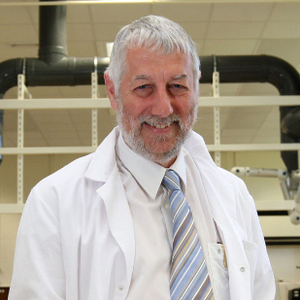Researchers in Wales synthesize methanol from crude glycerin

Photo: Cardiff Catalysis Institute
September 15, 2015
BY Ron Kotrba
Researchers from Cardiff Catalysis Institute in Wales have developed a way to increase the yield of biodiesel by using simple catalysis to convert glycerin from the transesterification process into methanol.
The researchers reacted glycerin with water, to provide hydrogen, with a magnesium oxide (MgO) catalyst. The reaction involved a simple one-step process and could be performed using mild conditions.
Since biodiesel is formed by reacting fats, oils and greases with methanol, the researchers estimate up to a 10 percent increase in biodiesel production when using methanol produced from crude glycerin. In addition, the newly gained methanol is derived from biomass rather than fossil fuels like a majority of the methanol used for biodiesel production.
Advertisement
The work, according to the institute, is in its early stages. In future studies, researchers will look to optimize catalyst design and increase its activity and selectivity.
“We’ve provided unprecedented chemistry that highlights the potential to manufacture biodiesel in a much more environmentally friendly, and potentially cheaper, way, by converting an undesired byproduct into a valuable chemical that can be reused in the process,” said Professor Graham Hutchings, CCI director and lead author of the study.
Co-author of the study Professor Stuart Taylor, deputy director of the CCI, said, “We set out to establish ways in which the waste product glycerol could be used to form other useful compounds, but we were surprised when we found that feeding glycerol and water over such a simple catalyst gave such valuable products and interesting chemistry. This research has the potential to transform the way in which waste is dealt with, and seriously improve the quality of life by reducing carbon emissions from fossil fuels and encourage efficient use of resources.”
Advertisement
Professor Matthew Rosseinsky, professor of inorganic chemistry at the University of Liverpool, who was not part of the study, said, “This paper shows how fundamental catalysis research can develop new mild processes to enhance the sustainability of biodiesel. As well as offering new opportunities for industry, it will stimulate the search for even better basic catalysts.”
The results of this work were published Sept. 14 in the journal Nature Chemistry.
Related Stories
Biodiesel capacity in the U.S. and Canada dipped slightly stable in 2024, with several renewable diesel producers reporting headwinds and lower margins alongside a drove of SAF projects in various stages of development.
The IEA’s Task 39 group has new research regarding the development and status of the sustainable aviation fuel industry.
The U.S. EPA on Nov. 16 released updated RIN data, reporting that nearly 2.11 billion RINs were generated under the RFS in October, up from 1.81 billion generated during the same month of last year.
Conestoga to host SAFFiRE cellulosic ethanol pilot plant
Conestoga Energy and SAFFiRE Renewables LLC announced on Nov. 16 their agreement for Conestoga to host SAFFiRE’s cellulosic ethanol pilot plant at Conestoga’s Arkalon Energy ethanol facility in Liberal, Kansas.
Officials at Calumet Specialty Products Partners L.P. discussed the company’s proposed plans to boost sustainable aviation fuel (SAF) production at its Montana Renewables biorefinery during third quarter earnings call, held Nov. 9.
Upcoming Events










